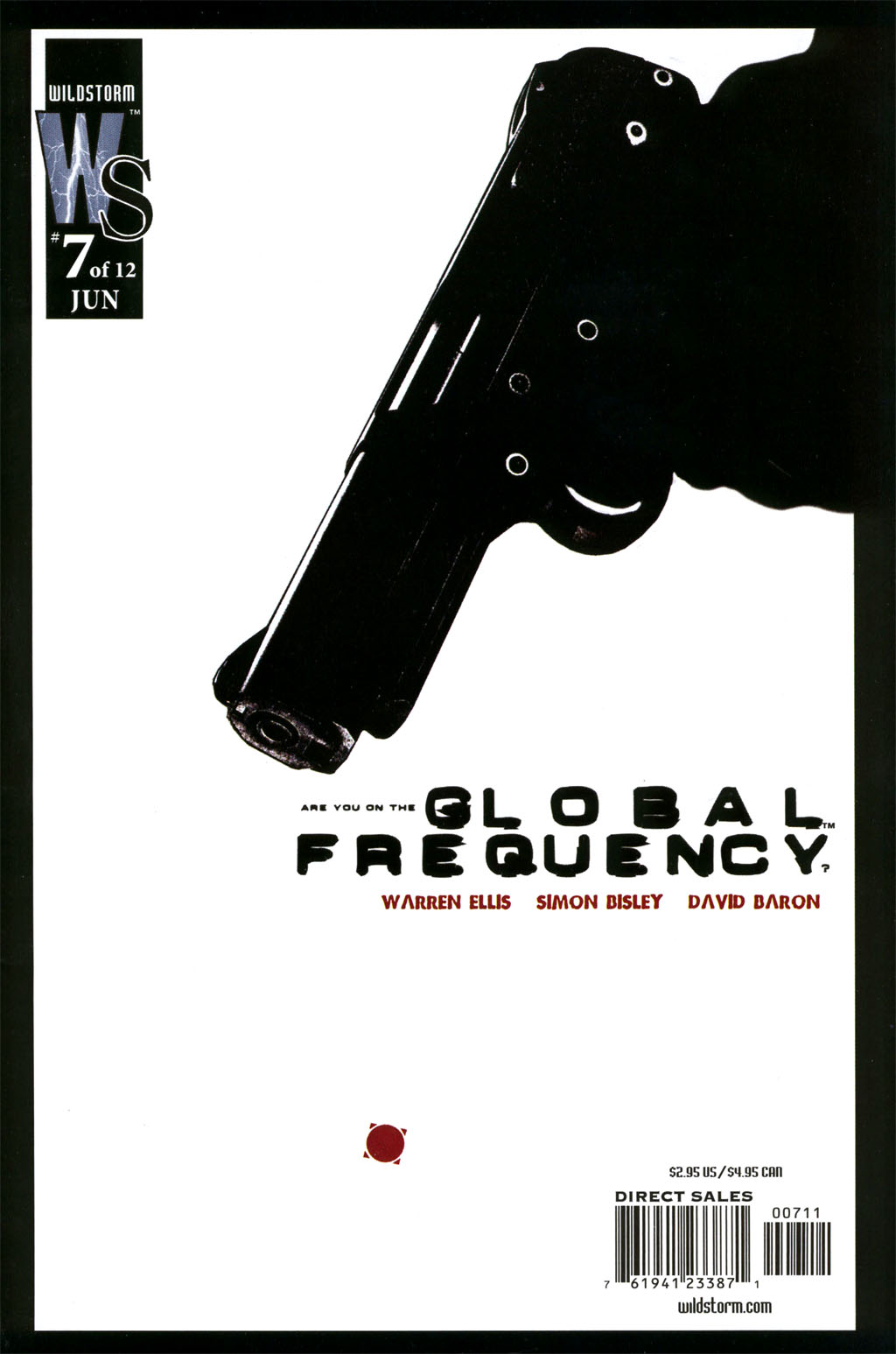"You're on the Global Frequency."
I imagine I'm going to cover most of the series Warren Ellis has finished on the blog at some point - that's a notable distinction, as he's also just abandoned a number of them - but I wanted to start with Global Frequency for a number of reasons.
First and foremost, Global Frequency is twelve issues, meaning it's not a big investment (you can pick up the whole series in one trade paperback for $15 from Amazon) and it's not a major time commitment.
Next, Global Frequency is independent of everything. It, ostensibly, exists inside our world. No superheroes, no folks in tights, no endless backstory for you to have to go digging into. Twelve issues. You're in; you're out.
Also, each issue is illustrated by a different artist, so if you find you aren't connecting with a particular style, for whatever reason (I've known people like this over the years - they can't read a comic, no matter how good it is, because they don't like the artist's style - I've never understood it), you just need to make it to the next issue. Or even just skip to the next issue. The stories are, mostly, self-contained. Each issue will give you a part of a bigger picture, but isn't necessary to enjoy any of the other stories. Although, you probably want to read the first one to get a good sense of what the concept of the book is. But I'll clue you in on that too.
There exists an independent intelligence agency known as the Global Frequency. There are 1,001 members. It was founded by Miranda Zero, who was clearly an intelligence agent... somewhere, before this. Everyone on the frequency is activated by a cell phone when they are needed by the operator known as Aleph, who is the communications hub for Global Frequency. Agents don't know anything about each other until they are activated. Each person on the frequency was chosen for a skillset and/or a region of influence.
When a crisis arises, Zero selects a team, Aleph activates it and away they go.
If it sounds a little bit like Mission: Impossible for the modern era, you aren't wrong. Ellis specifically designed the series to function like television, with each episode being self-contained so that people could drop in or drop out at a moment's notice. Also, it granted Ellis a lot more leeway in story-telling. Only Aleph and Miranda Zero were considered "safe" characters - anyone else could be killed off without warning, because it wasn't like you'd see them next issue any way. It was also planned to be exactly twelve issues, so that Ellis could work with all the available artists he had that he wanted to at the time, and then be done. He's threatened to do a sequel for a long time now. He really ought to get his ass on that.
Another part of what makes Global Frequency so damn good is that it taps into Ellis' almost fetishistic interest in beyond-the-pale technology and philosophy. Because of the concept, he could dabble in things like advanced prosthetics, Cold War psychotropic drug studies conducted by the military, mass hallucinations, etc. Each issue is framed around a "big idea" that the rest of the story hangs on, but keep in mind, "big idea" can sometimes be something as simple as parkour, which has become pretty widespread in mainstream media since then. (Although in my opinion, no one's really ever topped District B13 in that regard, but that's a post for another day.) Ellis uses the spy framework to build stories that deal with bigger questions, the sorts of questions you don't see people often asking in comics these days. And all of this on an action thread that really sings, whizzing along at top speed.
After reading Global Frequency, you may find yourself thinking that it's screaming for adaption to television, and you're not wrong. But it's been tried. John Rogers (one of the two people behind "Leverage," the best damn TV show not enough people watched) wrote and executive produced a pilot that you can find floating around the internet that was great. It was an adaptation of the first issue, but changed things around so there would be a couple more stable characters, as television often seems to need. It didn't get picked up for series. Then in 2009, supposedly the CW was looking at trying to have a go at it again, but that's half a decade ago and nothing came of it, so maybe television's overlords don't understand how badly we want it.
Then again, Ellis has supposedly been working on a number of stealth projects as of late, some of which are television related, so I can hope...
Until then, you should pick up Global Frequency and see what mad scientists will be up to in the next couple of years. Because some of the concepts he puts forth are frighteningly plausible...


No comments:
Post a Comment